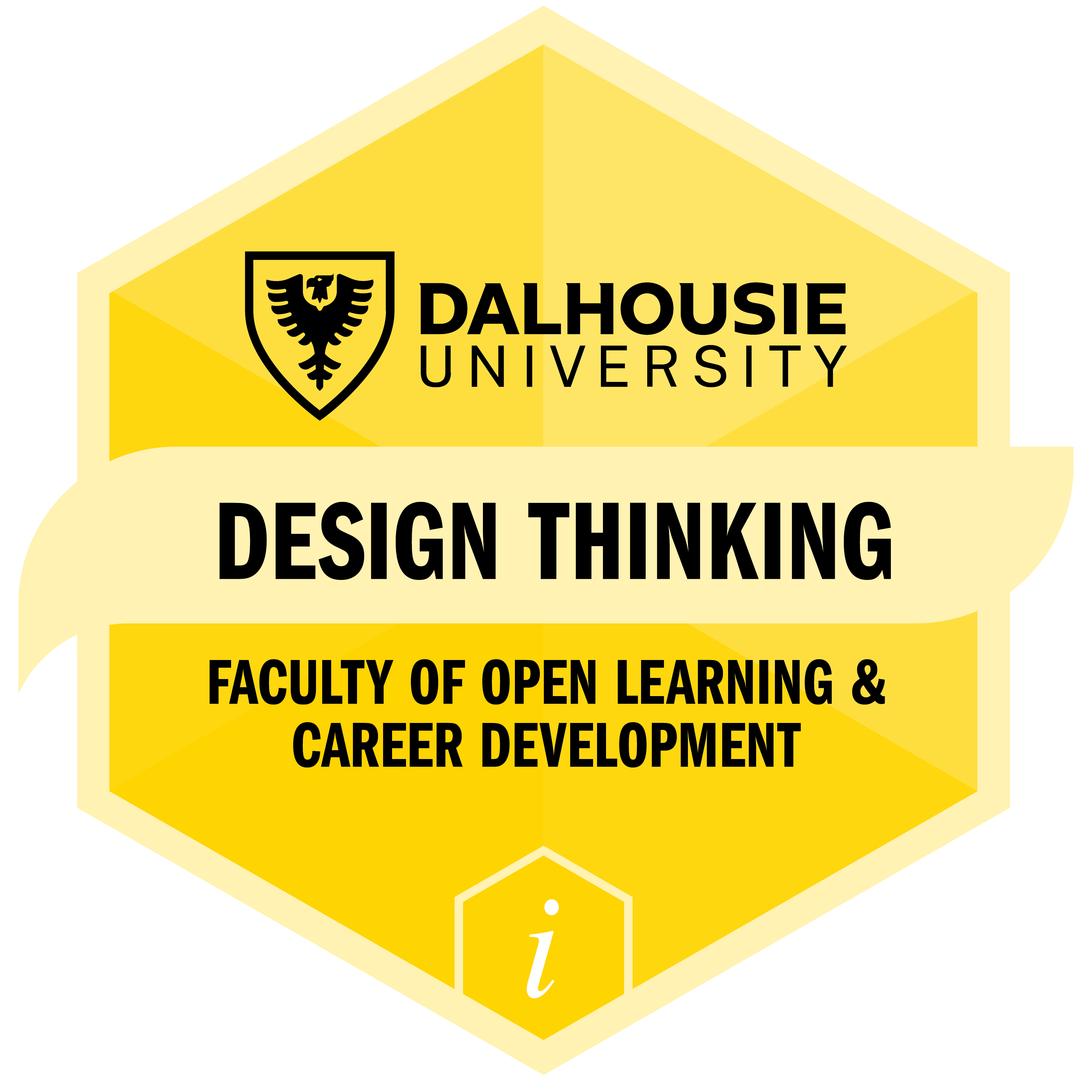Course Description
Today’s workplace is more uncertain, ambiguous and complex than ever before, and this calls for a different approach to solving problems. Design thinking is an innovative problem-solving approach that uses empathy, experimentation, and iteration to create solutions to complex problems. It is a human-centered and holistic approach to innovation that can be applied to a wide range of problems, from product design to business strategy.
During this course, participants will explore and learn about the design thinking process and how this systematic approach to analyzing problems and generating solutions can be applied to various domains.
Course Outline
- Foundations of Design Thinking
- Design Thinking Principles and Frameworks
- The 5 Building Blocks of Design Thinking Methodology
- Empathizing with your Users
- Synthesizing Insights and Defining the Problem
- Ideation
- Prototyping and Testing
- Implementing and Scaling
- Putting is all Together The Design Thinking Sprint
- Changing Systems: Design Thinking in Organizations
- Changing Communities: Design Thinking for Social Impact
- Equity Centered Design
What You Will Learn
Upon completion of this course, learners will be able to:
- Gain an understanding of the design thinking process, its stages, and the activities involved in each stage;
- Learn to empathize with end-users, focusing on their needs, aspirations, and challenges;
- Learn how to frame and define problems effectively, enabling them to approach problem-solving in a structured and meaningful way;
- Learn various techniques to generate innovative ideas, think creatively, build prototypes and iterate on their designs based on user feedback and testing;
- Develop a mindset that embraces experimentation, learning from failure, and embracing ambiguity. They will become more comfortable with taking risks and exploring new possibilities;
- Gain practical experience by applying design thinking principles to real-world challenges and projects. They will have the opportunity to present their solutions and receive feedback.
Microcredential
This course provides learners with the opportunity to earn a microcredential. A microcredential is evidence of a skill or competency that is employment related. Dalhousie microcredentials are developed in collaboration with employers, industries, and/or organizations that relate to the content. A microcredential can be displayed on social media pages, digital resumes, personal webpages, and in email signatures. To earn the microcredential in this course, learners will need to successfully complete a competency-based assessment.
Learn more about this Leadership microcredential on our website.
Notes
The Faculty of OLCD recommends an intermediate level of English language proficiency for the most effective learning and participation in our online and face-to-face courses. A list of minimum recommended scores on some common English tests can be found on our website. If you have questions about your English language proficiency and ability to succeed in this course, please contact openlearning@dal.ca.
Prerequisites
There are no prerequisites for this course.Recommended For
- Business leaders and managers who drive organizational change, improve customer experience, or develop strategies in a complex and ambiguous environments
- People involved in designing or improving services offered to internal or external clients
- People who would consider themselves early adopters, system changers, creatives, and those who adopt a ‘disruptive’ mindset and challenge status-quo
